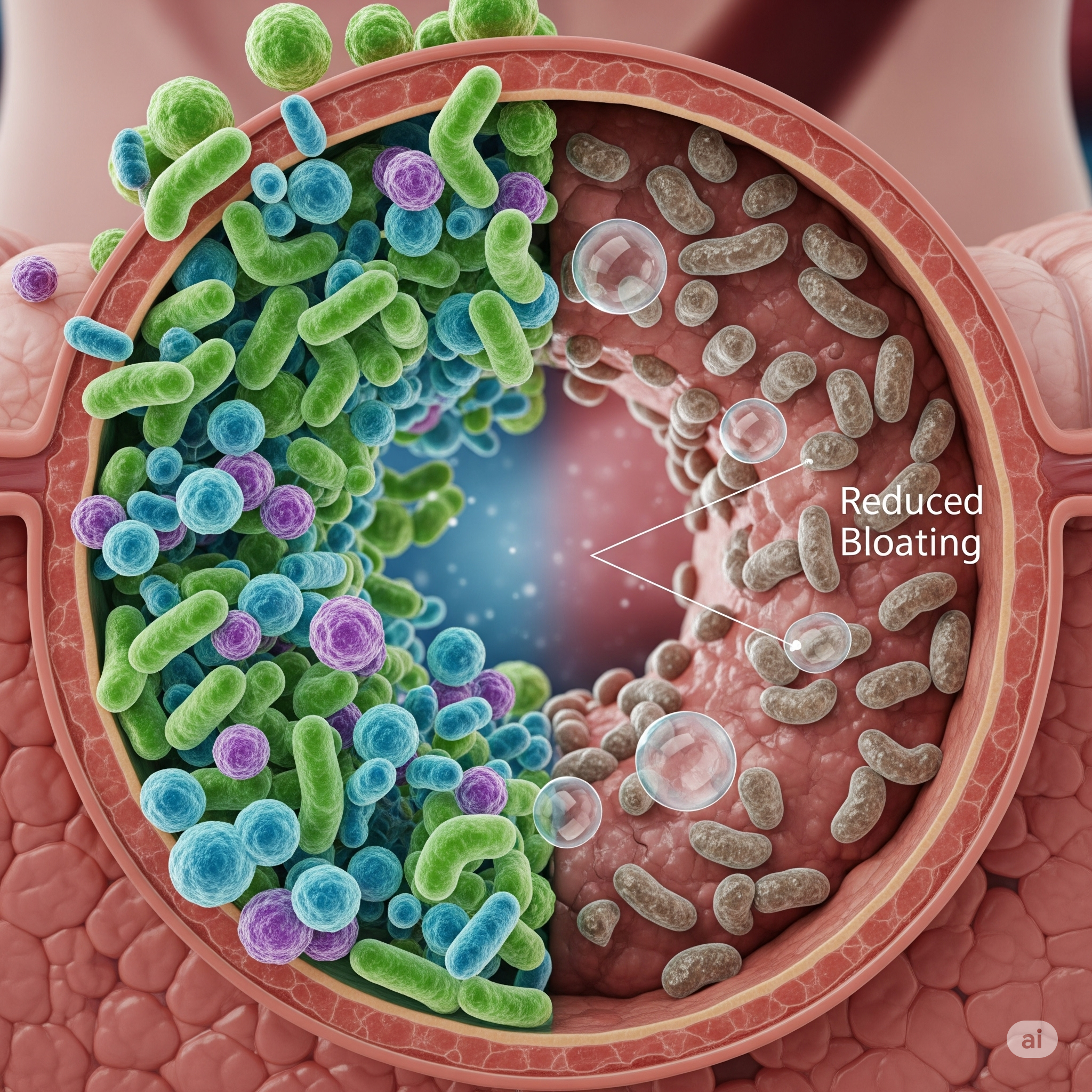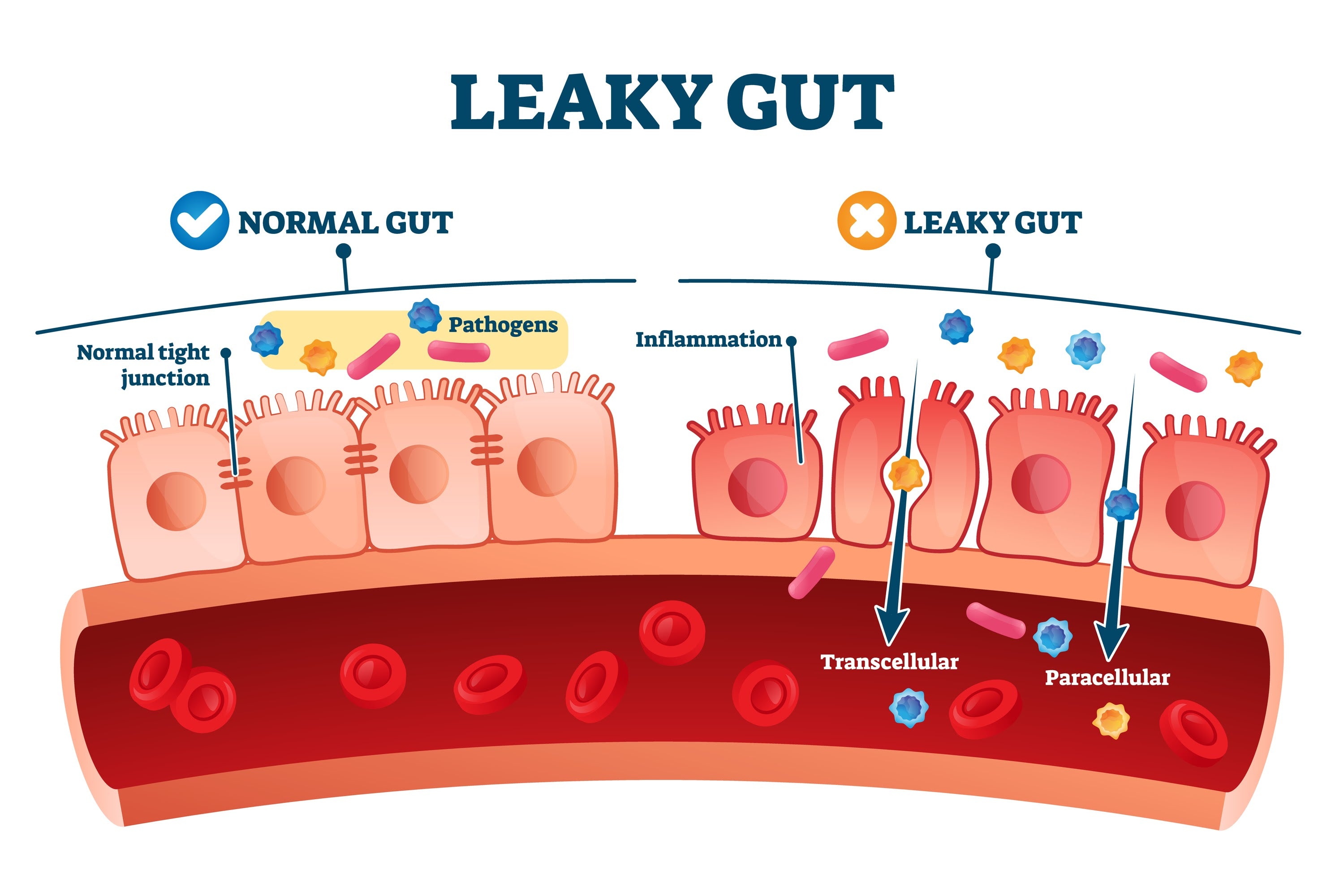Can Probiotics Help Relieve Bloating? How Do They Work?

The right probiotics supplements can support the balance of your gut microbiomes, reduce gas production in stomach,help food breakdown, promote short-chain fatty acids(SCFAs), and maintain the intestinal battier. When you choose a probiotic, these one should be prioritized, if it has clear label strains, adequate CFU, shelf stability, third-party testing; and if the product includes prebiotics, that will be much better. Start low and slow, take with meals, and evaluate over 2–4 weeks.
Why does bloating happen?
Let's know the causes before we choose the probiotics. Bloating often relates to microbiome imbalance, excess fermentation and gas, Intestinal motility disorders, and food intolerances (e.g., lactose, FODMAPs). The living habits of people in modern society—highly processed food, Sitting for long periods of time, stress/late nights, and recent antibiotic use — all these can put “good” bacteria at a disadvantage, leading to that “balloon stomach” feeling after meals.
When you have a bloating, when should you see your family health advisor?
The suggestion is: If bloating comes with unintentional weight loss, fever, blood or black stools, persistent severe pain, or night-time pain that wakes you, go to get medical evaluation immediately to rule out underlying disease.
How can probiotics support relief from bloating?
The following is a description of this issue, intended to provide some common-sense education.This is not intended to promote a disease or provide medical advice.
* The probiotics can rebalance the bacterias, to reduce gas-producing, species more beneficial bacteria, this can compete for space and nutrients, lowering fermentation pressure and creating a more comfortable gut environment.
* The probiotics can help to break down food to reduce undigested residues. Certain strains—and enzymes often paired in probiotic formulas — assist the breakdown of lactose, starches, and proteins, so less undigested food reaches the colon for secondary fermentation, reducing gas and bloat at the source.
* The probiotics can promote short-chain fatty acids (SCFAs). SCFAs like butyrate, acetate, propionate fuel colon cells, support mucosal repairing and fluid/electrolyte handling, and they also can modulate motility—the SCFAs encourage the movement when sluggish and steady it when too fast—thereby supporting stool form and regular rhythm.
* The probiotics can maintain the intestinal barrier to reduce sensitivity. Probiotics help support tight junctions and the mucus layer, strengthening the barrier and reducing bloat-related discomfort.
* The probiotics can adjust the gut–brain–hormone axis. By influencing serotonin (5-HT) and signals like GLP-1, probiotics can support gut motility and comfort, which many be very helpful for people with functional bloating problem.
Strain directions commonly discussed for bloating (in examples)
It’s more meaningful to look at species + strain. Below are directional examples only. Please follow the labeling of your specific probiotics product.
* Lactobacillus plantarum — often used to support post-meal comfort and gas management.
* Bifidobacterium lactis (e.g., HN019/BB-12) — frequently used to support stool regularity and form.
* Bifidobacterium longum — often used to support gut comfort and lower sensitivity.
* Lactobacillus rhamnosus GG and Saccharomyces boulardii — commonly used for post-antibiotic microbiome support and travel-related gut discomfort.
Reminder: Brands may use different numbered strains—always go by what’s on your label.
Do you understand now? If you have any questions about how probiotics improve bloating and how they work, please join the anvenhealth community to learn and discuss.
Welcome to follow us:

 https://www.facebook.com/profile.php?id=100063648664706
https://www.facebook.com/profile.php?id=100063648664706 https://www.tiktok.com/@anvenhealth
https://www.tiktok.com/@anvenhealth




Comments